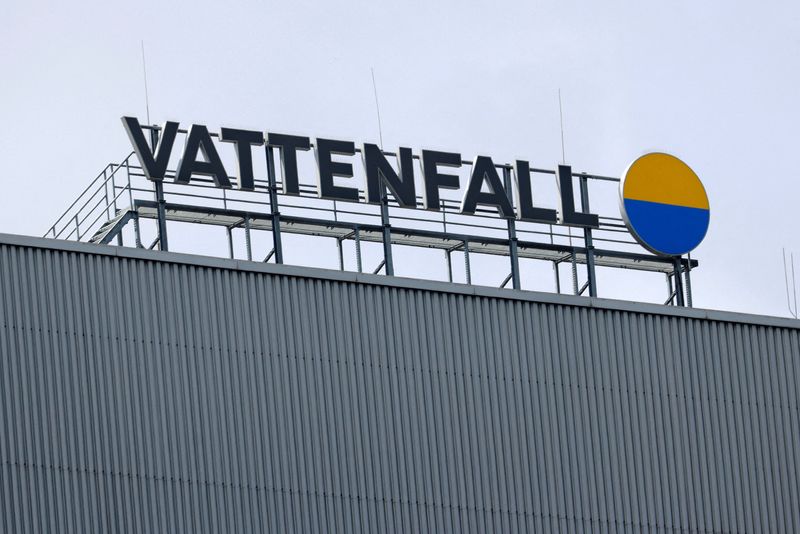By Marwa Rashad
LONDON (Reuters) - Swedish utility Vattenfall plans to expand green gas trading in the coming few years after it started trading biomethane and bioethanol last year, as it aims be net-zero by 2040, a senior executive told Reuters.
Vattenfall is striving towards making its upstream and downstream production chains fossil-free and to offer all customers fossil-free energy. The company on Tuesday reported a 45% rise in its underlying operating profit for the first quarter of 2024.
"We are trading and diversifying the products and we are moving away from just purely gas. It's not the lion's share, but we need to start somewhere, and we're building it out," said Guy Smith, director of natural gas trading and LNG at Vattenfall.
"Currently we are trading biomethane and bioethanol. We have concluded a handful of contracts already since starting a green gas desk in August... I personally hope we start trading hydrogen in the medium term," Smith said in an interview with Reuters.
Green gases are renewable and low carbon gases that can replace fossil fuels and reduce carbon emissions in the heat, power and transport sectors. They include biomethane, bio-propane and hydrogen.
Smith said that he expects to see growth in demand within Europe over the coming years, but declined to name countries where the company is actively trading such products.
Earlier this year, Vattenfall announced it will purchase over 7.5 million cubic metres annually of green gas from European waste management company Renewi, which will be added to the regular gas network, where it mixes with natural gas, making the gas mix sustainable.
Smith said that hydrogen naturally fits into the transition process, because it has characteristics similar to gas; however, it should not be seen as the silver bullet.

"I do not see hydrogen as being the silver bullet. I don't believe there is a silver bullet to solve the whole sort of the green issue," he said, adding that a few technology-related issues will need to be overcome and there will need to be a clear and stable regulatory framework in place.
"I'm not sure that I see hydrogen being traded in the near term. I think that's more of a mid-term prospect, over the next 5-10 years," he said.